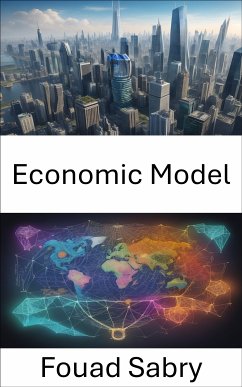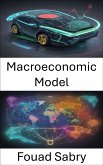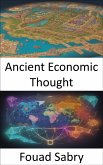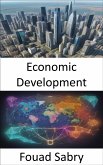An economic model is a theoretical construct representing economic processes by a set of variables and a set of logical and/or quantitative relationships between them. The economic model is a simplified, often mathematical, framework designed to illustrate complex processes. Frequently, economic models posit structural parameters. A model may have various exogenous variables, and those variables may change to create various responses by economic variables. Methodological uses of models include investigation, theorizing, and fitting theories to the world.
How you will benefit
(I) Insights, and validations about the following topics:
Chapter 1: Economic model
Chapter 2: Econometrics
Chapter 3: Macroeconomics
Chapter 4: Mathematical model
Chapter 5: Neoclassical economics
Chapter 6: Rational expectations
Chapter 7: Index of economics articles
Chapter 8: Lucas critique
Chapter 9: Macroeconomic model
Chapter 10: Bellman equation
Chapter 11: Econometric model
Chapter 12: Lars Peter Hansen
Chapter 13: Applied economics
Chapter 14: Economics education
Chapter 15: Qualitative economics
Chapter 16: Dynamic stochastic general equilibrium
Chapter 17: Mathematical economics
Chapter 18: Real business-cycle theory
Chapter 19: Mathematical finance
Chapter 20: Criticisms of econometrics
Chapter 21: Causal inference
(II) Answering the public top questions about economic model.
(III) Real world examples for the usage of economic model in many fields.
Who this book is for
Professionals, undergraduate and graduate students, enthusiasts, hobbyists, and those who want to go beyond basic knowledge or information for any kind of Economic Model.
Dieser Download kann aus rechtlichen Gründen nur mit Rechnungsadresse in A, B, BG, CY, CZ, D, DK, EW, E, FIN, F, GR, H, IRL, I, LT, L, LR, M, NL, PL, P, R, S, SLO, SK ausgeliefert werden.









